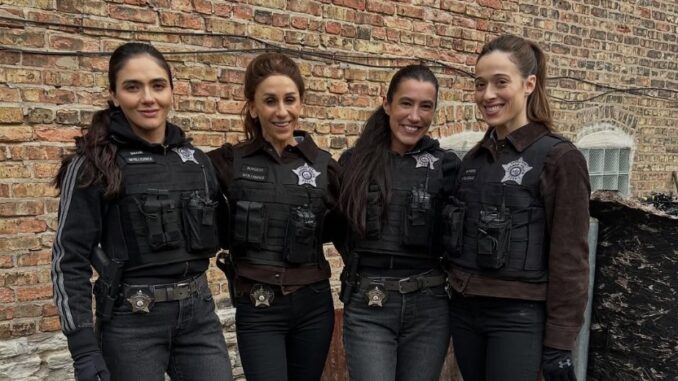
In more than a decade on air, Chicago P.D. has earned its reputation for emotional gut punches, unpredictable storylines, and characters who constantly walk the line between justice and chaos. But even in a series known for its intensity, a few moments have managed to leave fans completely stunned — moments that changed not only the trajectory of the show but also the emotional landscape of its devoted viewers. Here are five of the biggest shocks that Chicago P.D. fans still can’t stop revisiting.
The first seismic moment came with the death of Alvin Olinsky in Season 5. A beloved member of the Intelligence Unit, Olinsky’s wrongful imprisonment and subsequent murder sent shockwaves through the fandom. His final phone call with Voight — a quiet exchange filled with guilt and affection — remains one of the series’ most heartbreaking sequences. For many, this was the moment Chicago P.D. grew darker, solidifying its reputation for making bold, emotionally devastating choices.
Another unforgettable twist was Antonio Dawson’s departure in Season 6. Once considered the moral compass of the team, Antonio’s descent into painkiller addiction and ultimate exit left a gaping hole in the unit’s dynamic. The show’s decision to portray his struggle with realism rather than heroism surprised audiences and sparked conversations about mental health and police culture. Even years later, fans continue to speculate about what might have happened if Dawson had found a way back.
Then there was Hailey Upton’s shocking confession to Voight in Season 9 — that she had killed Roy Walton. The reveal didn’t just upend the unit’s sense of trust; it redefined Upton’s character arc. Watching Voight choose to cover for her reignited the moral debate that’s defined the show from the beginning: Where is the line between loyalty and corruption? That one scene between Jason Beghe and Tracy Spiridakos set social media ablaze, dividing fans between those who saw it as protection and those who saw it as hypocrisy.
Kim Burgess’s kidnapping and near-death experience in Season 8 remains one of the most talked-about storylines in recent memory. After being abducted, beaten, and left for dead, Burgess’s survival was both a relief and a warning — a reminder that Chicago P.D. isn’t afraid to put its strongest characters through the unthinkable. Marina Squerciati’s emotionally raw performance drew widespread praise and sparked renewed admiration for Burgess as the emotional center of the Intelligence Unit.
Finally, Anna Avalos’s tragic death at the end of Season 9 marked a defining moment for both Voight and the series as a whole. Her killing — and Voight’s desperate attempt to save her — exposed the vulnerability beneath his hardened persona. It was the culmination of a storyline that blurred every moral boundary the show had built over the years. Fans were left questioning whether Voight’s methods could ever truly lead to justice, or if he was doomed to repeat the same destructive cycle forever.
Each of these shocks did more than jolt audiences — they redefined Chicago P.D.’s identity. The show’s power has always come from its willingness to make bold, emotionally charged decisions, even at the expense of fan favorites. It’s not just about the cases or the action; it’s about how every moral compromise leaves scars on the people sworn to protect.
As Chicago P.D. continues its twelfth season, fans remain on edge, knowing that at any moment another twist could turn everything upside down. And if the past is any indication, those shocks will linger long after the credits roll — because in Chicago P.D., no one, not even the strongest, is truly safe.
